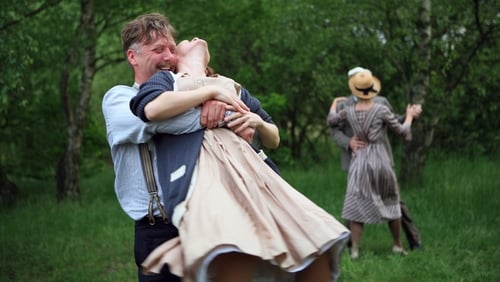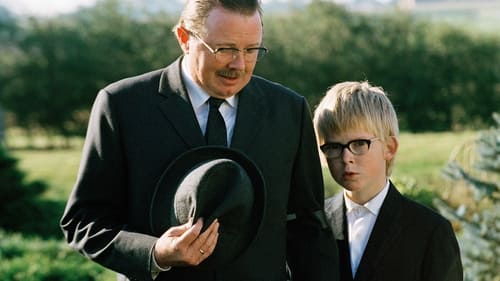
Producer
Suecia, 1900. En una época de cambios sociales y pobreza, Maria, una joven trabajadora, gana una cámara fotográfica en un concurso. Empieza entonces a vivir una doble vida, que la lleva a conocer a un fotógrafo que le enseñará a ver el mundo a través de la lente de una cámara.

Producer
Sur de Jutlandia, a principios de los 70. La vida no resulta fácil para Allan, de 11 años. Su padre padece "nervios psíquicos" y amenaza frecuentemente con suicidarse. Su madre ha tirado la toalla, su hermano mayor se ha ido de casa y la pequeña lechería de la familia no marcha bien. Cuando su hermana mayor deja de pasar las noches en el sofá con su padre, dependerá de Allan mantener unida a la familia.

Producer
We think, we talk, we write. Without language, we wouldn't be human. Out of the 6500 languages in the world, half of them will disappear. Voices of the World discusses the multiplicity of the world's languages. There is the language of violence, the dying language, the minorities' language, the youth's language and new languages. How will globalization affect them all?

Co-Producer
Director Sigve Endresen follow the singer Kari Iveland, daughter of two missionaries, on her way to release her first solo album. Through her lyrics we understand the discomfort she has felt all her life, which almost lead to suicide.

Executive Producer
An often humorous documentary about the building of the Öresund bridge, connecting Copenhagen in Denmark to Malmö in Sweden. We meet the people who work on production of the bridge, as well as opponents to the idea of such a bridge.

Director
In a culture where cremation is unusual, cemeteries fill up rapidly. In Latin America and in some other places, to solve the problem, remains are frequently exhumed. In Cuba, two year after interment. Relatives are invited to observe the little ritual. The music of the film is drawn from requiems from different periods. Twelve pieces by seven different composers are quoted. Together, they make up a traditional requiem, although only a few passages from the "dies irae" have been included, and other sections are slightly abbreviated.





